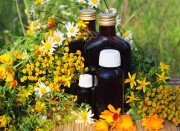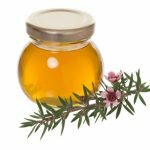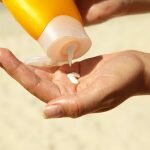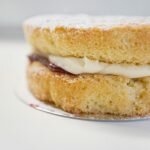Insomnia: Two Herbs to Help You Get a Good Nights Sleep
Sleep has become a valuable commodity these days, with people working longer hours, shuttling kids and grandkids to and from activities, and trying to accomplish all the other daily chores that just need to get done. Our schedules are exhausting, yet more and more people find themselves having trouble sleeping and suffering with insomnia.
Essentially there are two main types of insomnia. The first is when you find it difficult to go to sleep. This is known as sleep-onset insomnia. The other is when you fall asleep, but wake up at, say, 2 or 3 am and cant fall back asleep. This is sleep-maintenance (or interruption) insomnia.
There are numerous over-the-counter sleep aids available. They work, but they can also cause side-effects ranging from that groggy hangover feeling to actual dependency. However, there are
a few very effective and safe herbs you can try as an alternative.
Two ways to get to sleep faster
One of the key herbs for sleep-onset insomnia is valerian. Its been well-known as a natural sleep aid for quite a while, but whats new about it are the recent clinical trials that found it can work just as well as benzodiazepine drugs, such as diazepam (Valium) which are commonly prescribed for insomnia or sleeping difficulties.
For example, in one multicentre, double-blind, randomised clinical trial, 202 insomnia patients ranging in age from 18 to 73 years were treated with either 600 mg/day of valerian extract or 10 mg/day of the benzodiazepine drug oxazepam (Serax) for six weeks (Eur J Med Res 2002;7(11): 480-86). At the end of the trial, researchers concluded that valerian extract was at least as effective as oxazepam for improving sleep quality.
And unlike the benzodiazepine drugs, studies show that valerian does not cause sedation or impairment of functioning. In an Australian study, nine healthy volunteers received single doses of either valerian root (1,000 mg or 500 mg), the drug triazolam (Halcion, 0.25 mg), or a placebo (Hum Psychopharmacol 2003;18(8): 619-25).
Results confirmed that triazolam had a detrimental effect on cognitive processes, but valerian didnt. Another study compared even higher doses of valerian (600, 1,200 and 1,800 mg) with 10 mg diazepam and a placebo (Pharmacol Biochem Behav 2004;78(1): 57-64). Again, an impairment of performance occurred for the diazepam whereas valerian had no impact on any parameters tested.
In herbal medicine valerian is often combined with hops, another well-known herb for insomnia. A clinical study with a combination of valerian and hops was conducted in 30 patients suffering from mild to moderate insomnia (Eur J Med Res 2000;5(9): 385-90). The patients were treated with two tablets in the evening (each tablet contained 250 mg valerian extract and 60 mg hops extract). After just two weeks of treatment, sleep-onset time had declined and overall sleep efficiency increased.
How to stay asleep once you get there
Perhaps the most interesting recent development in insomnia treatment is the herb chaste tree. New research shows that it may actually increase the body’s own natural production of melatonin, which helps you have more restful uninterrupted sleep (Exp Clin Endocrinol Diabetes 2003;111(1): 44-6).
Researchers examined melatonin secretion in 20 healthy males ages 20 to 32 after the intake of a placebo or various doses (120 to 480 mg) of chaste tree extract for 14 days. The chaste tree caused a dose-dependent increase of melatonin secretion, especially during the night. Total melatonin output was approximately 60 per cent higher in the chaste tree group.
Although all of the trials on valerian and chaste tree are small, these are initial findings. However, these alternatives are natural and may be well worth a try before resorting to a prescription medication that can cause side-effects.
Get the most benefit in two weeks
For best results, use the doses shown to be effective in the clinical trials. For valerian this is around 600 mg of extract and for hops (taken in conjunction with valerian) its around 120 mg of extract. Take it about an hour before bed. Valerian or valerian and hops are mainly used for sleep-onset insomnia, but you can try them for the sleep-maintenance variety too, especially if you combine it with chaste tree (around 1,500 mg of berries per day). And even though it has been known as a remedy for various female problems for generations, it is perfectly OK for men to take chaste tree. You should give all of these herbs at least two full weeks of daily use to get the most benefit from them.
Few adverse events attributable to valerian have been reported for clinical study participants. Headaches, dizziness, itching, and gastrointestinal disturbances are the most common effects reported in clinical trials but similar effects were also reported for the placebo (Planta Medica 1985:2: 144-48; Psychopharmakotherapie 1996;3: 109-15; Pharmacopsychiatry 2000;33: 47-53).
Did you find this information useful?
Then why not get more expert health recommendations just like this delivered direct to your inbox?
"It is truly refreshing to read a newsletter on the topic of alternative medicine which is scientifically based and reviewed by professionals..." - Robert Sinott
We respect your privacy and will never share your details with anyone else.
Disclaimer: This article is part of the Daily Health's extensive research archive. The research and information contained in this article was accurate at the the time of publication but may have been updated since the date of publication. Consult our most recent articles for the latest research on alternative health and natural breakthroughs.
Bear in mind the material provided in this content is for information purposes only. We are not addressing anyone’s personal situation. Please consult with your own physician before acting on any recommendations contained herein.
- Comments (4)
- Facebook Comments (0)
Comments are closed.













I found that lavender works great in scent form. I sleep with a cup of crushed lavender in water next to my bed and it works.
Thanks for this handy information… A good night’s sleep is so essentail to having a positive outlook on life. Thanks again.
I did not know this about Agnus Castus (Chaste Berry) but a few years ago suffered terrible sleep disturbances with Menopause. I started taking Agnus Castus for hormonal upsets and hot flashes, (did not expect it to affect sleep at all) but did indeed find that my sleep improved.
The report quoted in ‘How to stay asleep once you get there’ above, is dated 2003. What research into this aspect of natural melatonin production using agnus cactus has been done since then, and what are the outcomes?